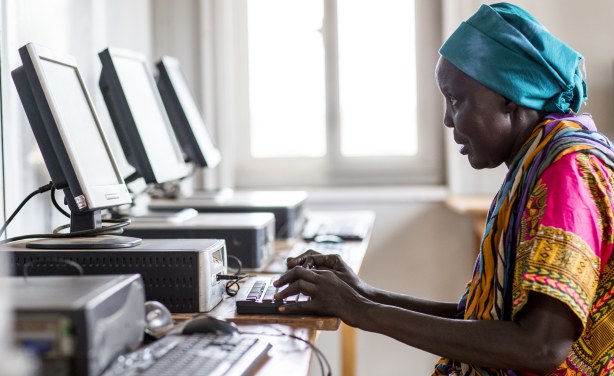Hanna Lemma, a fearless advocate for women’s rights and a feminist researcher in Ethiopia, is igniting change. At the helm of Addis Powerhouse, a feminist knowledge production platform led by young women, she’s challenging the deep-seated gender disparities within her country.
Read More: Investing in African Green Solutions
Gender inequality is a global concern, with a glaring 9% gap in women’s and men’s access to finance, as a joint report by the African Development Bank (AfDB) and the United Nations Economic Commission for Africa (UNECA) reveals. This disparity particularly affects digital financial tools. Women face various challenges – poverty, limited digital and financial literacy, cultural barriers, lack of training and insurance awareness, and restricted capital access, exacerbated by social norms that curtail their decision-making power outside the home.
In Ethiopia, as in many developing nations, the gender gap in digital financial inclusion is significant. Statistics indicate that women in Ethiopia are severely excluded from traditional financial institutions, with only 3% holding formal bank accounts, compared to 43% of men. To address this imbalance, Lemma emphasizes the need for robust policies and improved digital financial inclusion to empower Ethiopian women to advocate for their rights effectively.
Lemma strives to bridge the gender gap in digital financial inclusion, a prevalent issue across developing nations. She argues that digital financial inclusion can be pivotal in addressing this gap by offering women access to a spectrum of financial services, including digital transactions, mobile money, credit, savings, and micro-insurance.
Read More: #ECOFIN2023: The Growth of Cybercrime Endangers 1 in 3 Companies
Cultural and social norms present significant barriers to women’s access to digital financial services in Ethiopia, where women have limited digital and financial literacy. The patriarchal system further restricts women’s mobility and access to crucial information, and their representation in financial and technological sectors is inadequate.
Moreover, women shoulder a heavy burden of unpaid care work and reproductive responsibilities, leaving them with little time to engage with digital financial services. There’s also a misconception that these services are too complex for women to grasp. To overcome these challenges, Lemma advocates for creating awareness around gender equality, debunking patriarchal attitudes, and involving men as allies in women’s financial decision-making.
Ethiopia is amidst a digital transformation, with a growing interest in promoting women’s digital financial inclusion. The government and regulatory actors are taking steps to improve women’s access to digital financial services. In the face of backlash against feminism and women’s rights, data-driven arguments are vital, while knowledge of digital safety and security is essential to combat online gender-based violence.
Read More: From Trash to Treasure: The Remarkable Quest to Turn Plastic into Fuel
Lemma envisions a future where feminist knowledge production and gender research in Ethiopia thrive. Addis Powerhouse aims to empower young women and marginalized groups by providing resources and support, ensuring all women’s voices are heard in decision-making spaces. Her advice to young activists is simple yet powerful: read, learn, explore different perspectives, understand the world and its systems, and engage in the work.
